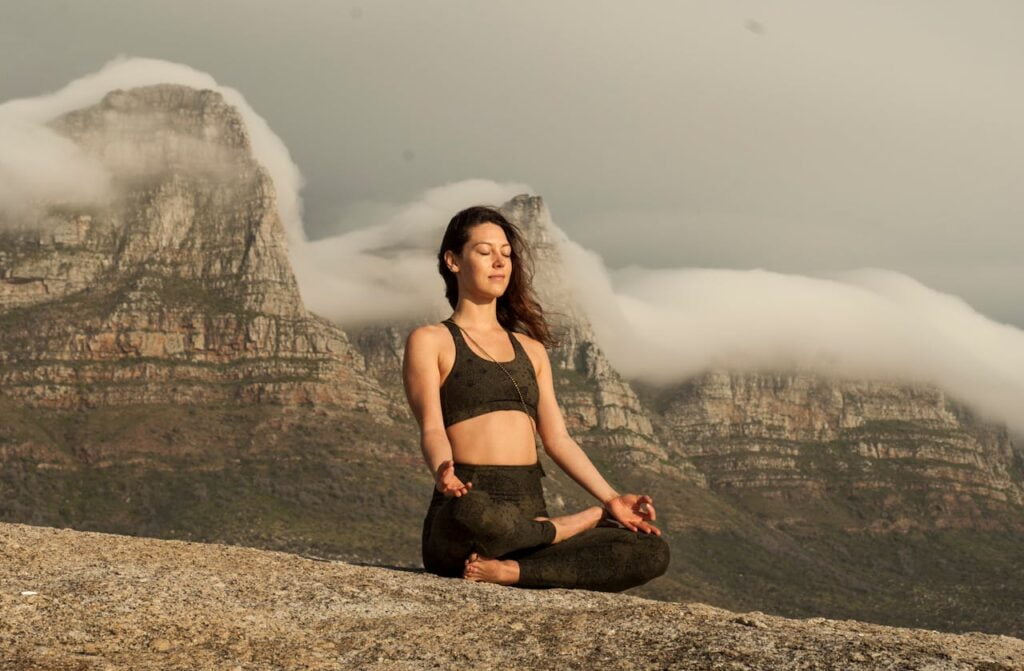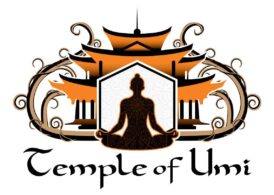Dive into the essence of Zen practice as a continuous journey of self-discovery and growth. Find resources to deepen your Zen Meditation practice and connect with a global community.
Introduction
Unveiling the Essence of Zen Meditation
Zen meditation, a practice deeply rooted in Buddhist tradition, invites us to experience peace and clarity that transcends the everyday chaos of our lives. It’s more than just a technique; it’s a journey towards inner silence and understanding the true nature of our being. Zen meditation encourages us to sit in stillness, breathe deeply, and observe our thoughts without attachment, leading to a profound sense of harmony and presence.
The Historical Roots of Zen Meditation
The origins of Zen meditation trace back to the 6th century when it emerged within the Mahayana Buddhism tradition in China, known as Chan Buddhism. It was later introduced to Japan, where it evolved into Zen as we know it today. This practice was built on simplicity, direct experience, and personal enlightenment, offering a path to spiritual awakening that has influenced millions worldwide. Learn more.
The Zen Philosophy
Understanding the Zen Mindset
The Zen mindset is anchored in the here and now. It emphasizes living fully in the present moment, letting go of attachments and preconceived notions that cloud our true nature. This mindset is not about accumulating knowledge but about emptying ourselves of it, allowing for a direct experience of reality as it is. Through Zen meditation, practitioners cultivate this profound awareness and openness to each moment.
Zen Buddhism: The Foundation of Zen Meditation
Zen Buddhism serves as the spiritual foundation for Zen meditation, offering a rich tapestry of teachings and practices aimed at enlightenment. At its core, Zen Buddhism teaches that enlightenment is attainable for everyone through direct personal experience rather than through texts or dogma. This belief underscores the practice of Zen meditation, where insight and understanding are gained not through intellectual pursuit but through disciplined training and introspection.
The Principle of Mindfulness in Zen
- Present Moment Awareness: At the heart of Zen meditation is the practice of mindfulness, which involves being fully present and aware of the here and now. This means observing our thoughts, feelings, and sensations without judgment.
- Cultivating Stillness: Through mindfulness, practitioners learn to cultivate a stillness of mind that allows for greater clarity and insight into the nature of existence.
- Everyday Mindfulness: Zen teaches that mindfulness is not just for the cushion; it’s a way of engaging with the world around us, bringing attentiveness and care to every action and interaction. Learn more.

Preparing for Zen Meditation
Creating Your Zen Space: Setting the Environment
To embark on the journey of Zen meditation, your environment plays a pivotal role. A Zen space is not just a physical location but a gateway to tranquility and mindfulness. Here are steps to create yours:
- Choose a Quiet Corner: Find a space away from daily distractions. It doesn’t have to be large, just secluded enough to maintain focus.
- Simplicity is Key: Zen philosophy values minimalism. A simple, clutter-free area helps in reducing mental clutter as well.
- Elements of Nature: Incorporate elements such as a small plant, a rock, or a simple water bowl to symbolize connection with nature.
- Subtle Lighting: Natural light or soft lampshades can set the right mood for meditation, providing a calm and soothing ambiance.
The Importance of Posture in Zen Meditation
In Zen meditation, posture is fundamental. It’s not merely about comfort but aligning the body and mind. Key aspects include:
- Straight Back: Sit with your back straight, yet not stiff. This helps maintain alertness and allows energy to flow freely.
- Hands-on Lap: Place your hands gently on your lap, palms facing upward, symbolizing openness and readiness to receive.
- Chin Slightly Tucked: This aligns the spine further and encourages focus.
Zen Attire: Dressing for Comfort and Focus
What you wear during Zen meditation significantly affects your practice. Comfortable, loose-fitting clothes are recommended for several reasons:
- Ease of Movement: Loose clothing allows unrestricted breathing and blood circulation.
- Fabric Choice: Natural fabrics like cotton or linen are preferable as they are breathable and keep the body at a comfortable temperature.
- Colors Matter: Subdued colors are ideal as they reflect the Zen meditation’s calming essence and do not distract the mind. Learn more.
The Practice of Zen Meditation
The Basics: Breathing Techniques and Mindful Awareness
The foundation of Zen meditation lies in mindful breathing and awareness. Here’s how to begin:
- Observing the Breath: Focus on your natural breathing pattern without trying to change it. This awareness brings you to the present moment.
- Counting Breaths: To help maintain focus, silently count each breath. Start over whenever you lose count or reach ten.
Zazen: The Art of Sitting Zen Meditation
Zazen, or seated meditation, is the core of Zen practice:
- Find Your Seat: Sit on a cushion or chair, ensuring your hips are slightly elevated above your knees.
- Eyes Open: Unlike other meditation forms, Zazen recommends keeping your eyes slightly open to maintain the connection with the outside world.
- Just Sit: The essence of Zazen is in “just sitting,” allowing thoughts and sensations to arise and pass without attachment.
Kinhin: Integrating Movement with Meditation
Kinhin is the practice of walking meditation, offering a dynamic aspect to Zen meditation:
- Slow Pace: Walk slowly and deliberately, fully aware of each step and the sensation of movement.
- Hand Position: Clasp your hands gently in front of you, aiding in maintaining focus and balance.
- Mindful Steps: With each step, be fully present, blending movement and mindfulness seamlessly.
Managing Expectations and Common Challenges
Zen meditation is a practice of patience and persistence. Here are tips to navigate everyday challenges:
- Start Small: Begin with short sessions, gradually increasing the duration as your concentration improves.
- Distractions Are Normal: Acknowledge distractions without judgment and gently return your focus to your breath or step.
- Every Day is Different: Some days will be easier than others. Recognize this as part of the process and continue your practice with compassion and patience. Learn more.
Incorporating Zen into Daily Life
Finding serenity in the fast-paced whirlwind of modern life can often feel like searching for a whisper in a storm. Zen meditation emerges as a beacon of calm, offering tools and practices to manage stress and enhance our overall well-being. Here’s how Zen can be seamlessly woven into the fabric of our daily routines:
Zen Meditation for Stress Management
- Begin with Breathing: Start your day with five minutes of Zen breathing exercises to ground yourself. Inhale deeply, filling your lungs, then exhale slowly, envisioning stress leaving your body with each breath.
- Mindful Moments: Use routine activities, such as drinking your morning coffee or walking to your workspace, as opportunities to practice mindfulness. Focus solely on the task at hand, observing every detail and sensation.
The Role of Zen in Enhancing Concentration and Creativity
- Single-Tasking Zen: In an era of multitasking, Zen encourages focusing on one task at a time. This practice boosts concentration and fosters creativity, as a focused mind is more likely to generate innovative ideas.
- Creative Meditation Breaks: Incorporate short meditation sessions into your day to clear your mind, potentially unlocking creative insights and solutions previously obscured by mental clutter.
Zen Practices for Emotional Balance and Inner Peace
- Daily Gratitude Reflection: Reflect on three things you’re grateful for each evening. This Zen practice nurtures positivity and helps maintain emotional equilibrium.
- Zen Walking: Take regular walks in nature, practicing mindful walking. This connects you to the environment and promotes inner peace by appreciating simple, natural beauty. Learn more.
Advanced Zen Meditation Techniques
For those who have begun to tread the path of Zen and wish to delve deeper, advanced techniques offer a profound exploration of the mind and spirit. These practices can enhance your Zen journey, leading to more significant insights and inner transformation.
Koan Practice: The Use of Paradoxical Questions in Zen
- Engage with Koans: Koans are enigmatic questions or statements used in Zen practice to transcend logical thinking and provoke enlightenment. Engage with a koan by contemplating it deeply, letting go of the need for conventional answers.
- Koan Meditation Sessions: Dedicate specific meditation sessions to focusing on a koan. Allow your mind to explore the question from all angles without seeking a direct solution, facilitating a deeper understanding of Zen principles.
The Significance of Silent Retreats in Deepening Zen Practice
- Embracing Silence: Participate in silent retreats to immerse yourself in Zen practice without the distractions of daily communication. This silence fosters a deep connection with your inner self and the essence of Zen.
- Retreat Reflections: Use the retreat experience to reflect on your practice and life from a place of silence and introspection. These periods of concentrated practice can lead to significant breakthroughs in understanding and personal growth. Learn more.
The Global Influence of Zen Meditation
Zen Meditation in the West: Adoption and Adaptation
Zen meditation, deeply rooted in Buddhist tradition, has traversed oceans to significantly impact the Western world. Its journey westward began in earnest in the mid-20th century, facilitated by pioneering Zen masters and intrigued Western seekers. This cultural exchange led to adapting Zen practices, making them accessible to a broader audience while preserving their essence.
- Cultural Integration: Zen meditation found resonance within diverse Western communities, leading to the establishment of Zen centers and meditation groups. These spaces provided a communal setting for practice, learning, and spiritual exploration.
- Adaptation to Modern Life: In adapting to Western lifestyles, Zen meditation evolved into forms that could be integrated into daily routines. Shorter meditation sessions and incorporating mindfulness practices into everyday activities became common.
- Influencers and Popular Culture: The adoption of Zen meditation was further propelled by influential arts, literature, and science figures who embraced and promoted its benefits. Consequently, Zen principles began permeating various aspects of Western culture, from mindfulness-based stress reduction programs to influences in popular media.
The Impact of Zen Meditation on Health and Wellness
The global spread of Zen meditation has profoundly impacted the health and wellness landscape. Its practices offer a holistic approach to well-being, addressing physical, mental, and emotional health.
- Stress Reduction: Regular Zen meditation practice has been shown to reduce stress levels significantly. Fostering a state of relaxation and present-moment awareness helps practitioners navigate life’s challenges with greater calm.
- Enhanced Mental Health: Studies have linked Zen meditation to improvements in various aspects of mental health, including reduced symptoms of anxiety and depression. The practice promotes a balanced mind, emotional resilience, and improved self-awareness.
- Physical Health Benefits: Beyond mental and emotional well-being, Zen meditation has been associated with physical health benefits. These include lowered blood pressure, improved immune function, and enhanced sleep quality.
- Mindfulness in Healthcare: The principles of Zen meditation have been integrated into therapeutic practices, notably Mindfulness-Based Stress Reduction (MBSR) and Mindfulness-Based Cognitive Therapy (MBCT). These approaches leverage mindfulness to support health and healing, underscoring Zen meditation’s influence on modern healthcare paradigms.

Final words
The Continuous Journey of Zen Practice
Zen meditation is not merely a practice but a journey—a continuous path of discovery, growth, and understanding. It invites practitioners to explore the depths of their being, embrace the present moment, and cultivate a peaceful coexistence with the world. The journey of Zen practice is lifelong, offering endless opportunities for personal and spiritual development.
Further Resources for Zen Meditation Enthusiasts
For those drawn to the path of Zen meditation, a wealth of resources awaits to support and enrich your practice:
- Books and Publications: A myriad of books offer insights into Zen meditation’s philosophy, techniques, and stories. From classic texts by Zen masters to contemporary guides, literature suits every interest and level of expertise.
- Online Platforms: Websites, blogs, and social media groups dedicated to Zen meditation provide a space for learning, sharing, and connecting with a global community of practitioners.
- Retreats and Workshops: Participating in Zen meditation retreats and workshops offers an immersive experience, allowing for more profound practice, guidance from experienced teachers, and the fellowship of like-minded individuals.
- Local Zen Centers: Engaging with a local Zen center can provide a supportive environment for practice and growth. These centers often offer regular meditation sessions, teachings, and community events.











